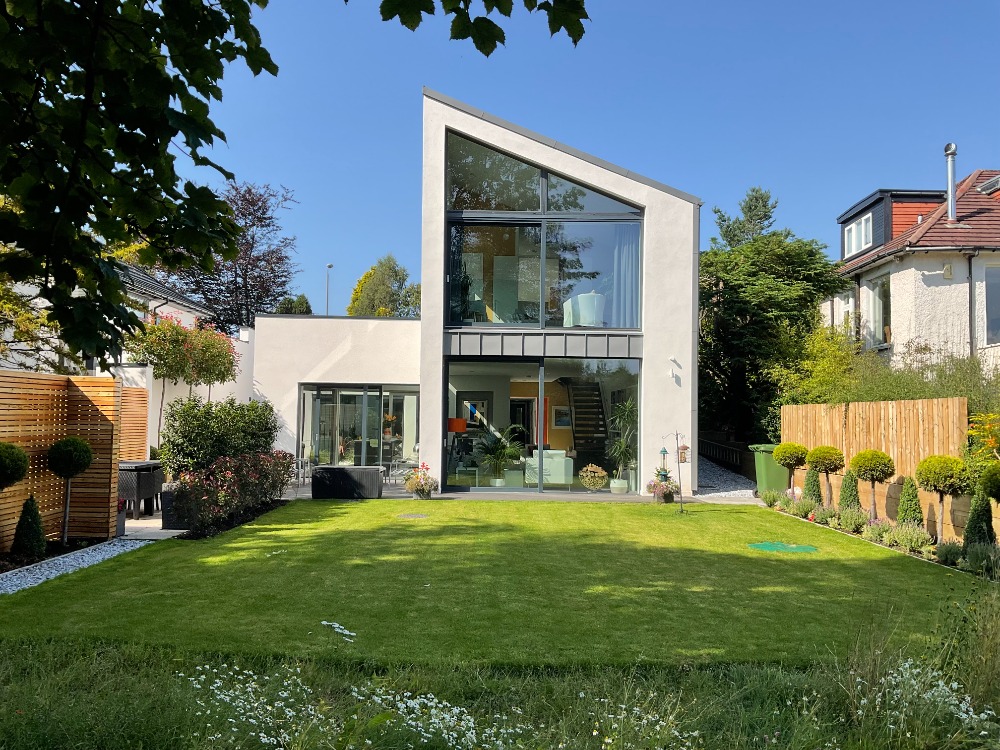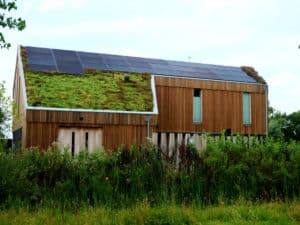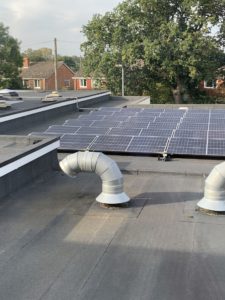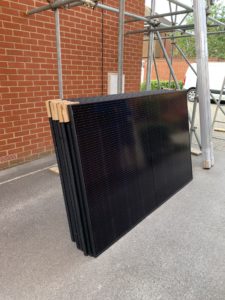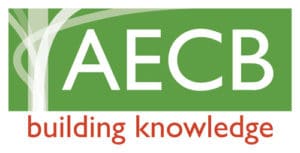In this case study, we are going to look at a low-energy self-build in Glasgow, Scotland. This recently finished property boasts both a striking and contemporary aesthetic, teamed with extremely innovative design considerations. So much so, the home has been shortlisted for the ‘Best ICF Home’ category in the 2021 Build It Awards.
What was the client looking for?
The client, who is a retired architect, alongside their project architect (Stewart Cameron, Cameron Webster Architects), had designed the home to be positioned in the garden of their existing property. This presented several design and level limitations that Insulated Concrete Formwork (ICF) could triumph with ease. Due to their previous experience, the client was looking to source a shell contractor they could work alongside. They would self-manage the interior fit-out of the property, while the contractor could assist with both the build, plus the architectural and engineering detail of the structure.
What is ICF?
ICF is a modern building system that teams concrete and polystyrene building blocks together to produce an innovative building system that is becoming hugely prominent in modern construction. The blocks are used to form the interior and exterior walls of the structure, sometimes coined as ‘adult Lego’. The blocks are then filled with concrete, offering both structural integrity and unrivalled insulation. As per the self-builder’s plans, the walls are finished with a rendering of their choice.
What did Econekt do?
After achieving Local Authority planning permission, Econekt collaborated with the project design team to ensure the home was designed both to maximise the value of the Izodom ICF used. This guaranteed the proper integration with the homes’ key components; from the below-ground waterproofing, triple glazed window system and the key detail of ensuring the basement cap had a suitable structural loading and waterproofing design to allow this to be used as the homes driveway area.
To ensure this, the site first had to be excavated, providing safe and compliant access to the existing road and new driveway access levels. This was done in such a way as not to disrupt the existing road structures as these had previously been retained partially by the natural ground levels of the site itself.
By incorporating Izodom ICF at such an early stage of the works, meaning that the client’s low-energy and Passivhaus principle requirements were met, all the while ensuring the structural ability of the house’s design was simplified. The Izodom ICF helped to provide both airtightness and Passivhaus level insulation, while keeping the self-managed fit-out as uncomplicated as possible.
The junction between the ICF and the timber roof structure of a home can often be prone to leaks. In this project, Icynene spray foam was used to both insulate and provide an airtight barrier between the roof and the ICF walls. This is standard practice for our shells as the spray foam compliments the ICF’s airtightness and thermal performance with ease.
Following the shell completion, Econekt then managed the external finishes which included standing seam zinc, acrylic render and a monoblock paving to the driveway of the home.
Benefits to the client
Of course, the site itself did not come without challenges, particularly due to the ground being on a split level. This was overcome using ICF, and Econekt were able to complete the waterproof basement on this efficiently. The single method of construction provided an insulated envelope and retaining structure, while also waterproofing the entire property. This safeguarded the home against any flooding or water damage.
In both the basement, and above ground, Izodom ICF was used throughout alongside the insulated foundation slab and the external boundary walls. This ensured that our client could enjoy unrivalled thermal insulation, airtightness, and low-to-zero running costs.
This article was provided by low-energy and Passivhaus builder Econekt. So good, even Mother Nature would approve.



